News in Brief
-
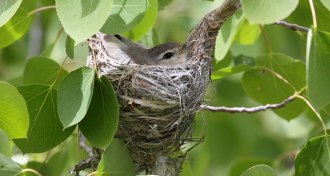 Animals
AnimalsBird nest riddle: Which shape came first?
Today’s simple cup-shaped songbird nests look as if they just had to have evolved before roofed nests. But that could be backward.
By Susan Milius -
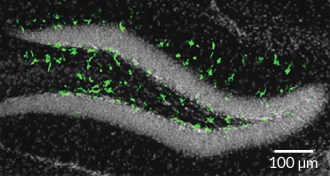 Health & Medicine
Health & MedicineZika kills brain cells in adult mice
Zika virus may harm more than babies: The virus can infect and kill brain cells in adult mice, too.
By Meghan Rosen -
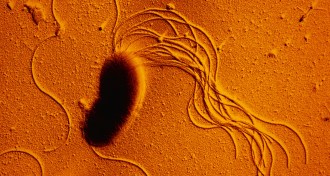 Life
LifeTwo stationary kinds of bacteria can move when mixed
Bacteria stuck when alone on a dry surface get moving — and get faster — when they evolve together.
By Susan Milius -
 Life
LifeFor bacteria, assassination can breed cooperation
Cholera bacteria stabbing each other can encourage the evolution of cooperation.
By Susan Milius -
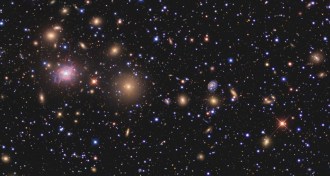 Astronomy
AstronomyDark matter candidate particles are a no-show in Hitomi data
Before the Hitomi satellite broke apart, it captured data that cast further doubt on evidence of X-rays from dark matter particles in a galaxy cluster.
-
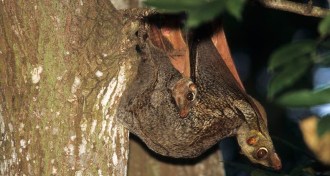 Animals
AnimalsColugo genome reveals gliders as primate cousins
New genetic analysis suggests gliding mammals called colugos are actually sisters to modern primates.
-
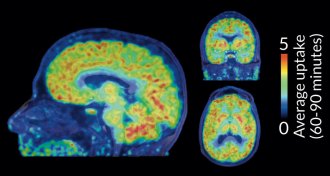 Genetics
GeneticsScientists get a glimpse of chemical tagging in live brains
For the first time scientists can see where molecular tags known as epigenetic marks are placed in the brain.
-
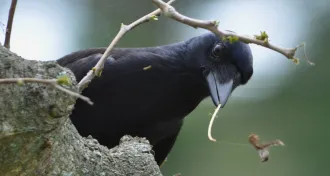 Animals
AnimalsBetty the crow may not have invented her hook-bending tool trick
Textbook example of Betty the crow’s proposed insight into toolmaking is now called into question by observations of similar hook bending by wild New Caledonian birds.
By Susan Milius -
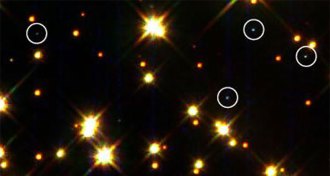 Particle Physics
Particle PhysicsCooling stars hint at dark matter particles
Stars that cool faster than expected can be explained by hypothetical particles called axions.
-
 Particle Physics
Particle PhysicsUpon further review, suspected new particle vanishes
Hints of a new particle at the LHC have disappeared.
-
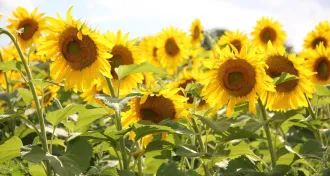 Plants
PlantsInternal clock helps young sunflowers follow the sun
A circadian clock helps sunflowers follow the sun’s daily path across the sky
-
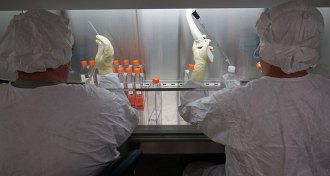 Health & Medicine
Health & MedicineZika vaccines work in rhesus monkeys
Three vaccines can protect rhesus monkeys from infection with Zika. One of them fended off viral strains from both Brazil and Puerto Rico.
By Meghan Rosen